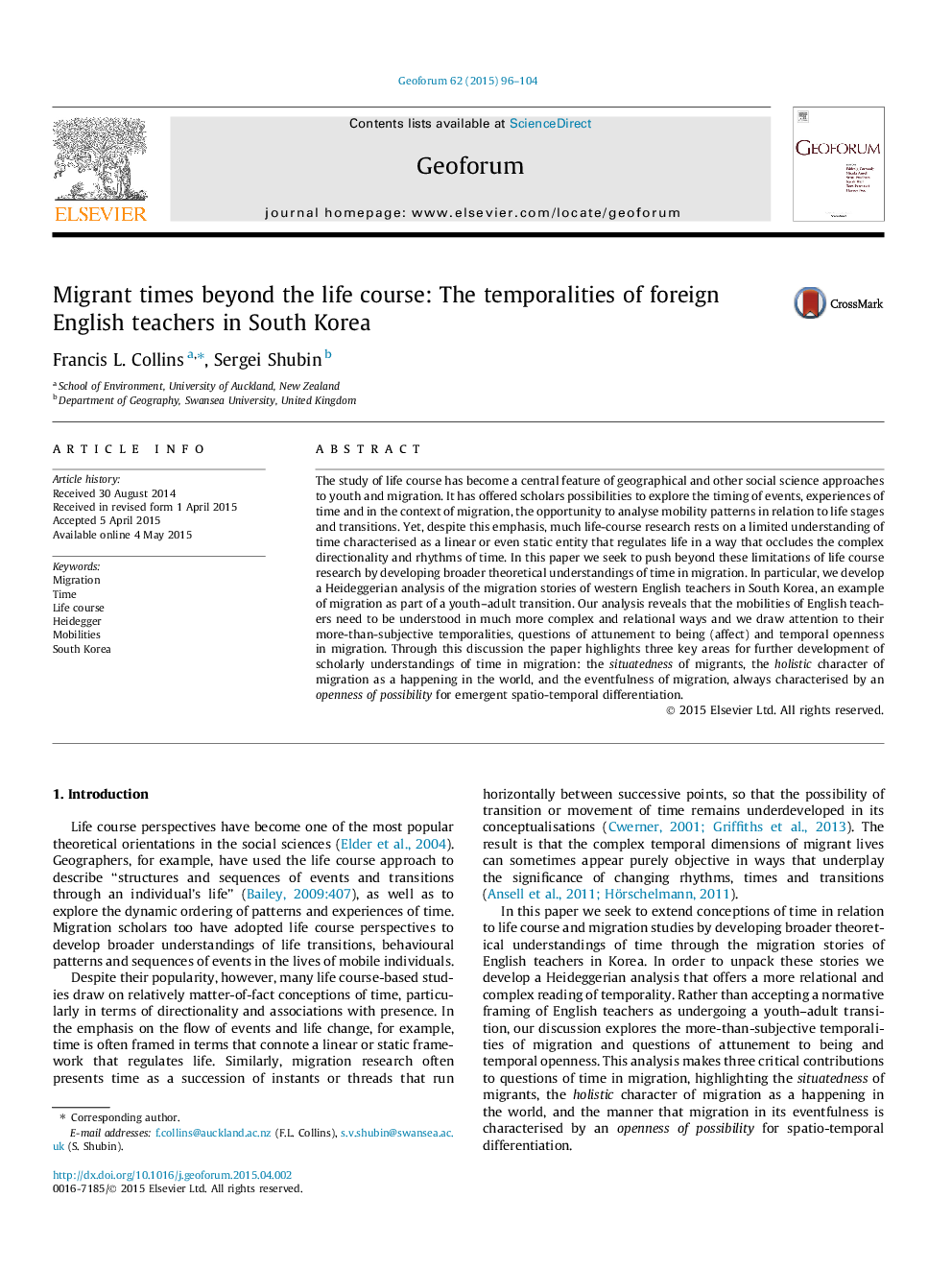| Article ID | Journal | Published Year | Pages | File Type |
|---|---|---|---|---|
| 5073573 | Geoforum | 2015 | 9 Pages |
Abstract
The study of life course has become a central feature of geographical and other social science approaches to youth and migration. It has offered scholars possibilities to explore the timing of events, experiences of time and in the context of migration, the opportunity to analyse mobility patterns in relation to life stages and transitions. Yet, despite this emphasis, much life-course research rests on a limited understanding of time characterised as a linear or even static entity that regulates life in a way that occludes the complex directionality and rhythms of time. In this paper we seek to push beyond these limitations of life course research by developing broader theoretical understandings of time in migration. In particular, we develop a Heideggerian analysis of the migration stories of western English teachers in South Korea, an example of migration as part of a youth-adult transition. Our analysis reveals that the mobilities of English teachers need to be understood in much more complex and relational ways and we draw attention to their more-than-subjective temporalities, questions of attunement to being (affect) and temporal openness in migration. Through this discussion the paper highlights three key areas for further development of scholarly understandings of time in migration: the situatedness of migrants, the holistic character of migration as a happening in the world, and the eventfulness of migration, always characterised by an openness of possibility for emergent spatio-temporal differentiation.
Related Topics
Social Sciences and Humanities
Economics, Econometrics and Finance
Economics and Econometrics
Authors
Francis L. Collins, Sergei Shubin,
